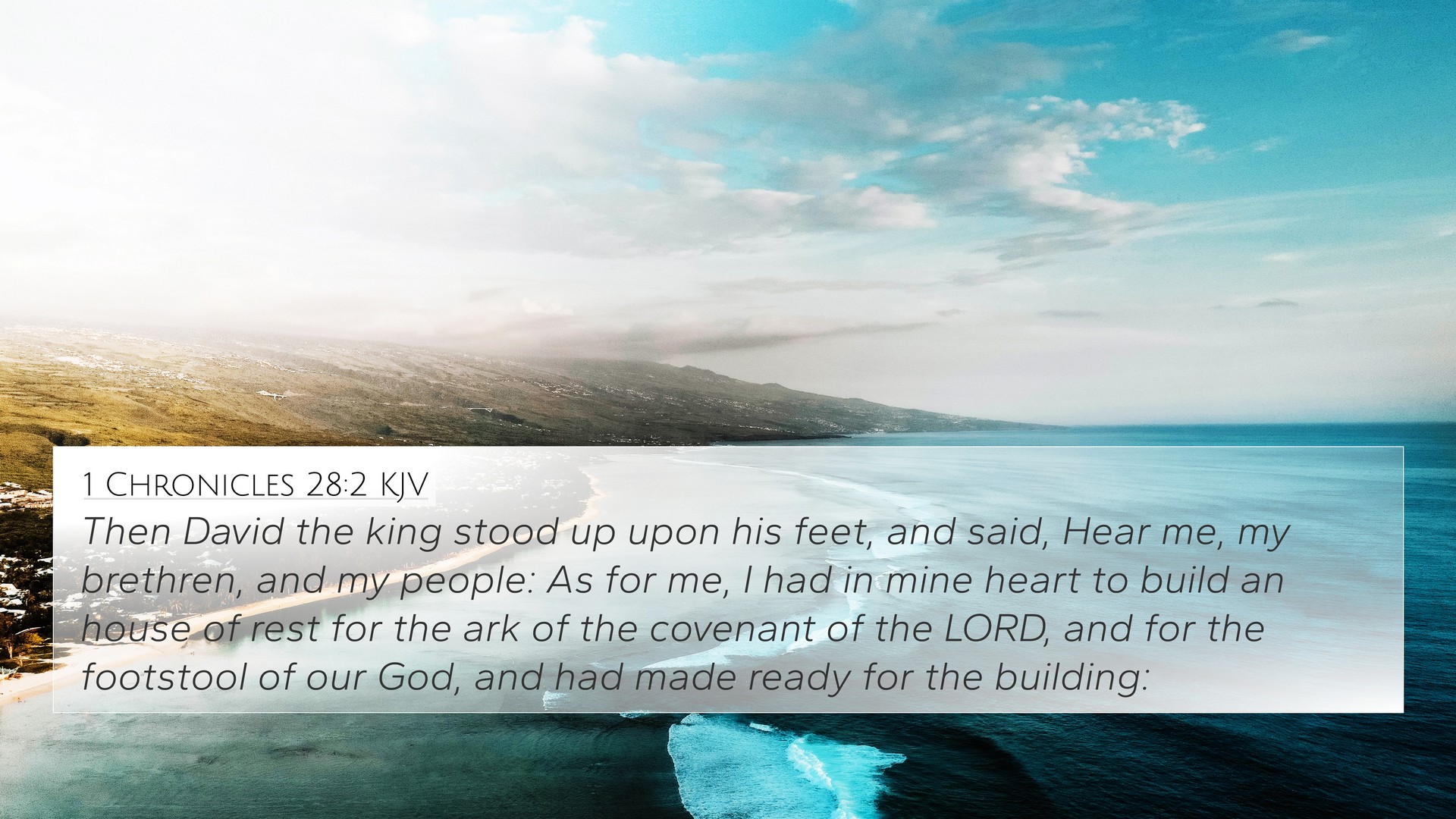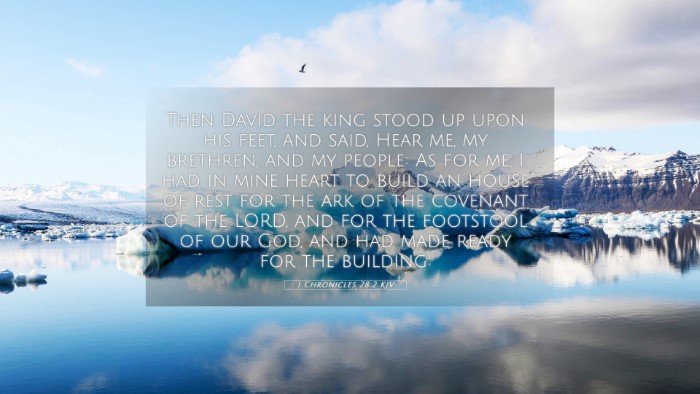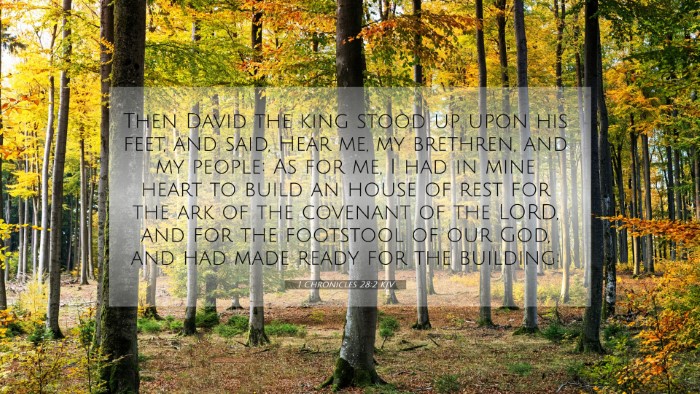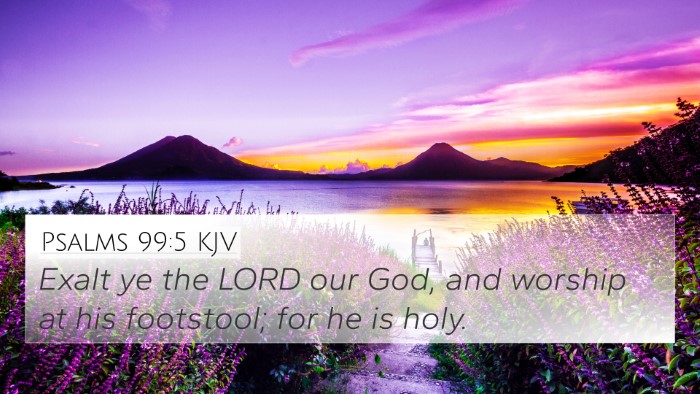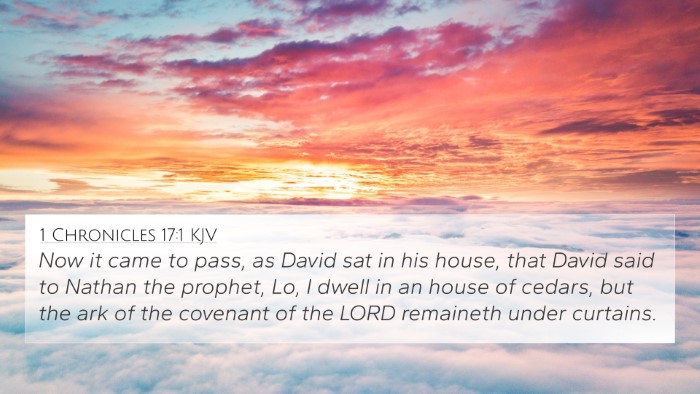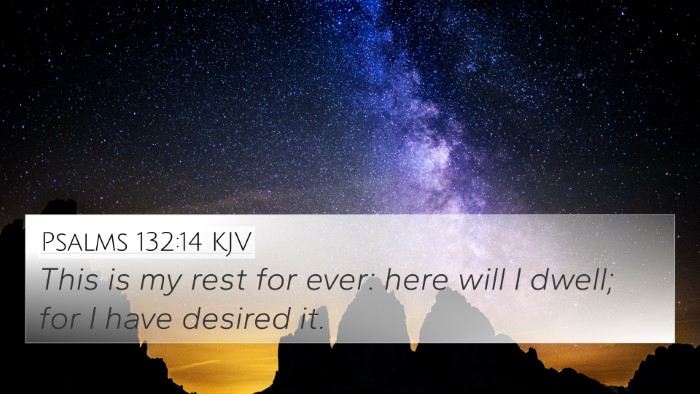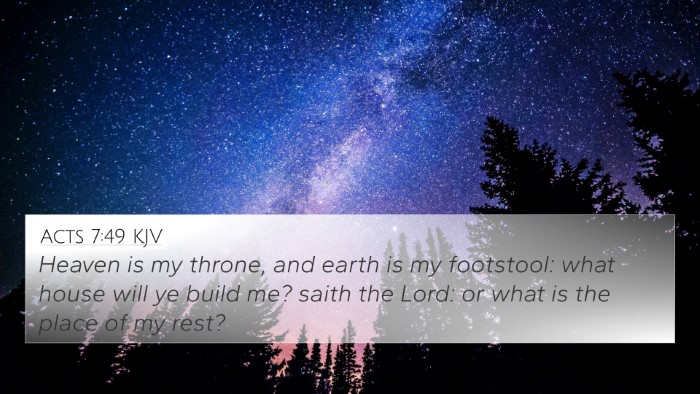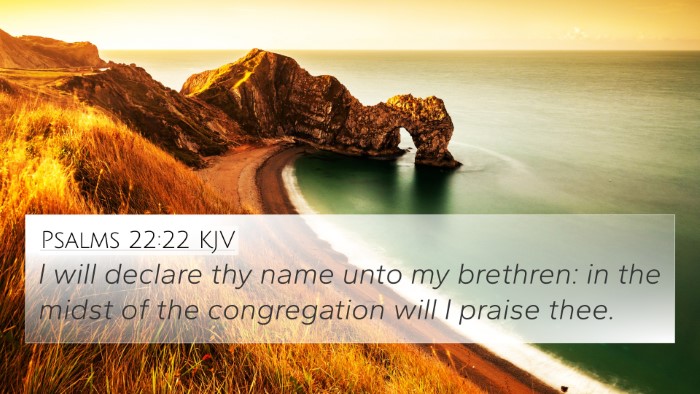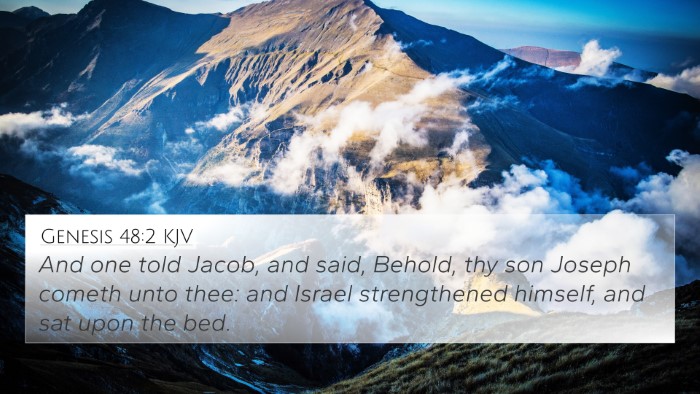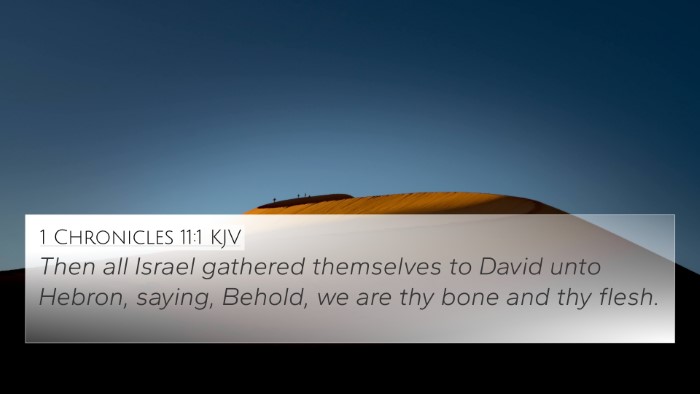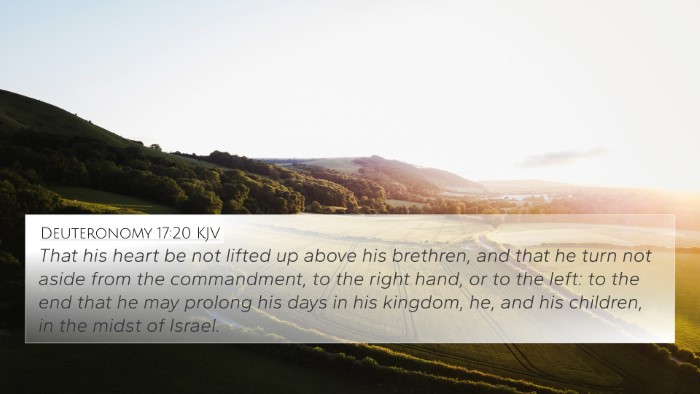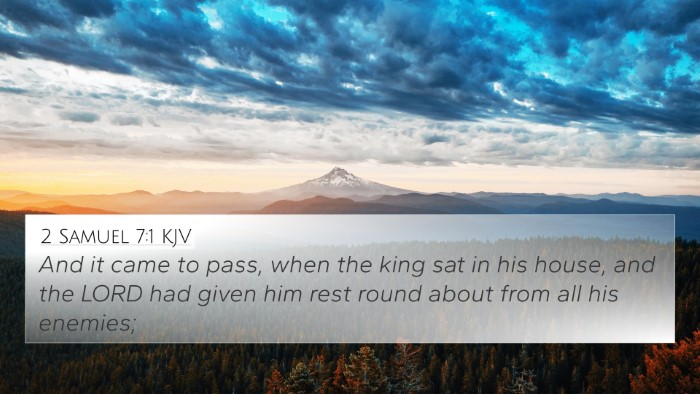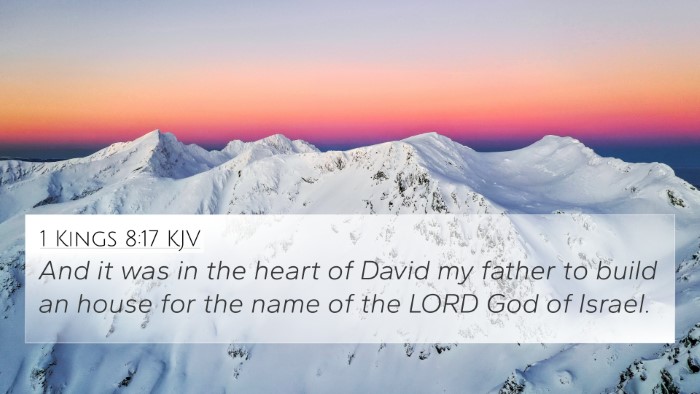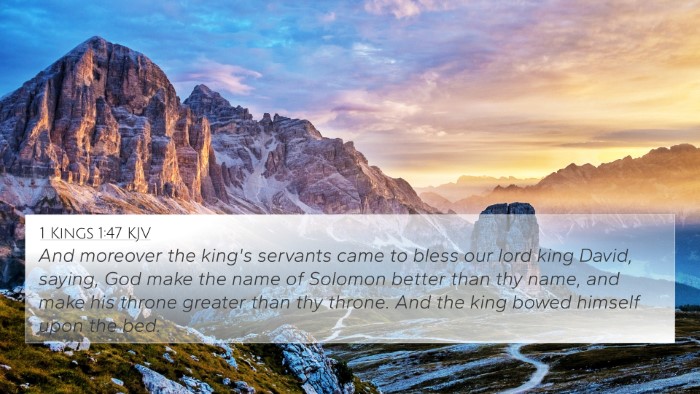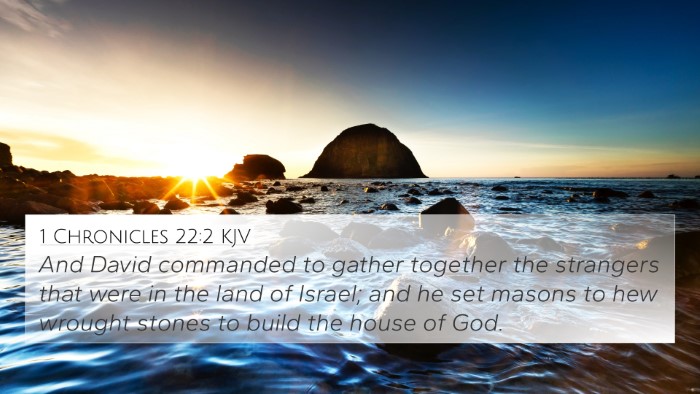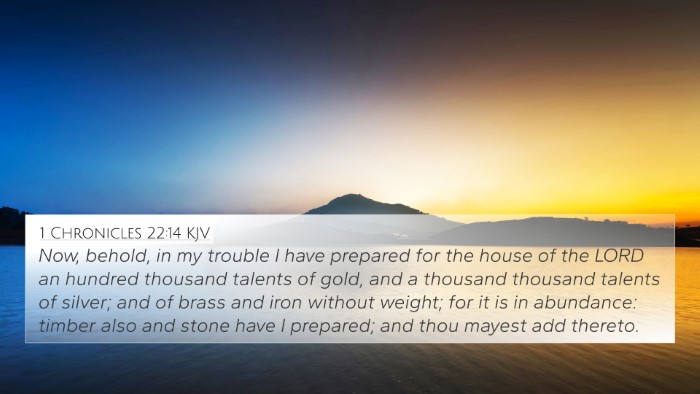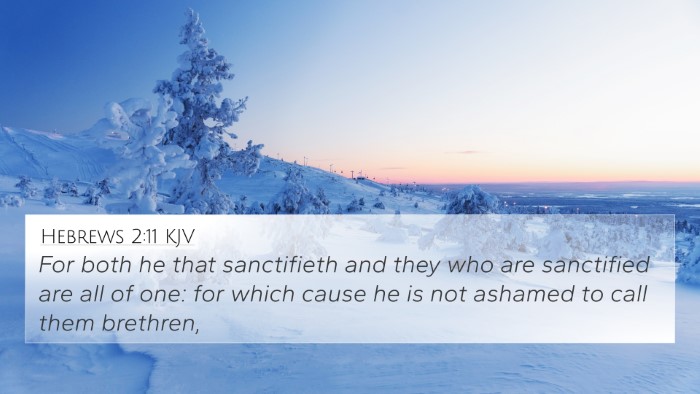Understanding 1 Chronicles 28:2
In 1 Chronicles 28:2, the context unfolds as King David gathers the leaders of Israel to communicate his divine intentions regarding the construction of the temple. This moment is pivotal, as it encapsulates David's heart for God and his desire to build a place for the Lord's presence. The verse states:
"Then King David rose to his feet and said: 'Hear me, my brethren and my people: I had it in my heart to build a house of rest for the ark of the covenant of the Lord, and for the footstool of our God, and had made preparations to build it.'" (1 Chronicles 28:2 NASB)
Commentary Insights
Various public domain commentaries provide profound insights into this verse. Here’s a combined interpretation based on the works of Matthew Henry, Albert Barnes, and Adam Clarke:
David's Resolution to Build
- Matthew Henry: Highlights David’s earnest desire to create a permanent dwelling place for God’s presence, reflecting not just personal ambition but a heartfelt devotion to God. Henry emphasizes that David’s intention stemmed from an understanding that a physical temple would signify God's dwelling among His people.
- Albert Barnes: Points out that David’s preparations, even though not completed in his lifetime, were significant in their own right. This illustrates God's use of human effort as part of His divine plan. Barnes further elaborates that the temple symbolizes God’s glory and a covenant relationship with His people.
- Adam Clarke: Focuses on the 'footstool' of God, suggesting that David understood the temple as a sacred space where heaven meets earth. Clarke elucidates that the construction of the temple would not only serve the Israelites but would echo throughout generations as a landmark of God’s faithfulness.
Thematic Connections
This verse connects deeply with various themes in the Bible, particularly the concept of God's dwelling, the significance of worship, and the role of leadership in spiritual matters. The following are some key cross-references that relate to this verse:
- Exodus 25:8: "And let them make me a sanctuary; that I may dwell among them." - Here, God expresses the desire to dwell among His people, a theme that resonates with David’s wish.
- 1 Kings 6:1: "And it came to pass in the four hundred and eightieth year after the children of Israel were come out of the land of Egypt, in the fourth year of Solomon's reign over Israel, that he began to build the house of the Lord." - This shows the fulfillment of David’s desire through Solomon.
- Psalm 132:5: "Until I find out a place for the Lord, a habitation for the mighty God of Jacob." - This verse echoes David’s longing to find a resting place for God.
- 2 Samuel 7:12-13: "When your days are fulfilled and you rest with your fathers, I will set up your seed after you... He shall build a house for My name." - God's promise to David underscores the significance of the temple's construction.
- Isaiah 66:1: "Thus says the Lord: Heaven is my throne, and the earth is my footstool; where then is a house you could build for me?" - This verse reflects on the greatness of God, transcending physical structures, yet highlights the importance of worshipful spaces.
- Acts 7:47-50: "But Solomon built him a house. However, the Most High does not dwell in temples made with hands..." - Stephen’s speech reminds us of God’s omnipresence beyond physical temples.
- Revelation 21:3: "And I heard a loud voice from the throne saying, 'Behold, the dwelling place of God is with man...'" - This depicts the ultimate fulfillment of God residing among His people in the future.
Application of 1 Chronicles 28:2
The implications of this verse extend beyond historical context. It challenges believers today to reflect on:
- How they honor God's desire to dwell within them (1 Corinthians 3:16).
- The importance of making preparations in life, both spiritually and materially, to ensure their lives reflect God's purpose.
- The role of faith in leadership, understanding that spiritual endeavors require commitment and a heart aligned with God's will.
Conclusion
1 Chronicles 28:2 serves as a passionate declaration from King David concerning his life's ambition to honor God through the temple. It is enriched by the interpretative layers provided by biblical commentators and interlinked with various scripture references that deepen our understanding of God's presence and intent. By cross-referencing these verses, one can appreciate the rich tapestry of biblical truths regarding worship, divine habitation, and the faithful responses of God's people throughout history.
Further Study and Reflection
For those seeking to enhance their understanding of the Bible and its interconnected verses, engaging in a comprehensive study using various bible cross-reference tools, bible concordance, and bible cross-reference guides can be invaluable. This approach not only aids in recognizing connections between Bible verses but also enriches one's spiritual journey through comparative Bible verse analysis and scriptural cross-referencing. The exploration of biblical themes through cross-referenced studies can lead to a deeper appreciation and understanding of God's word.
